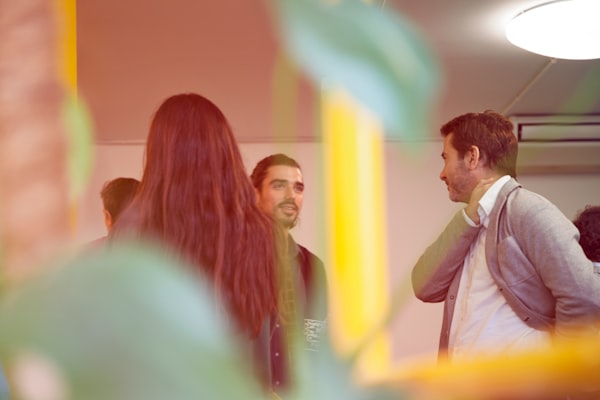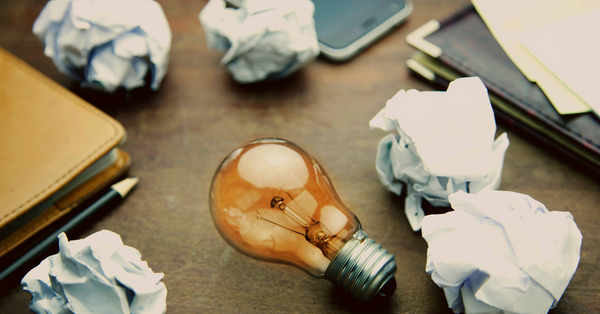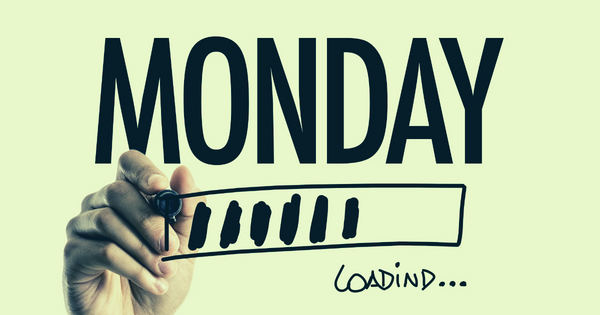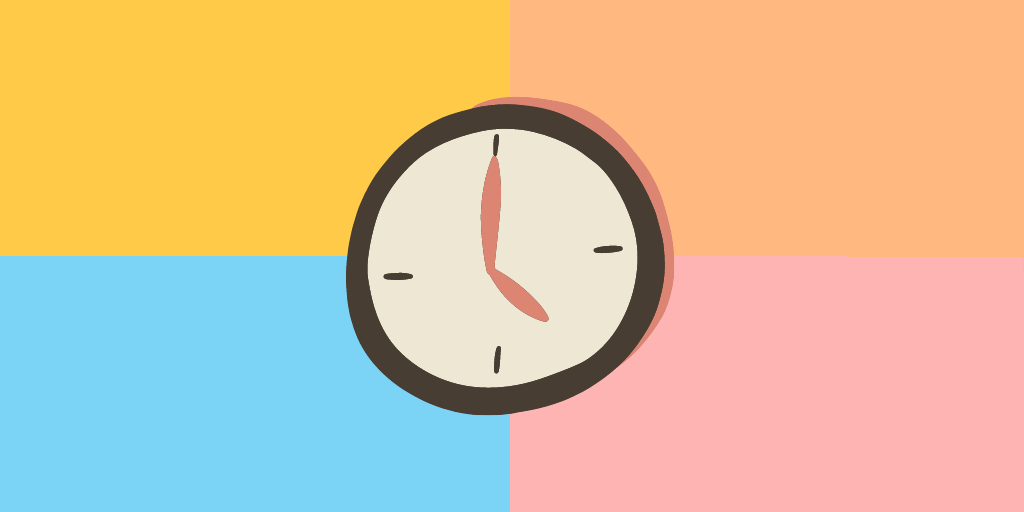I immensely improved my ability to focus by disconnecting. My work became so efficient that I had time for everything.
Disconnecting sounds complicated, but it’s pretty simple to implement — you can start in a few minutes!
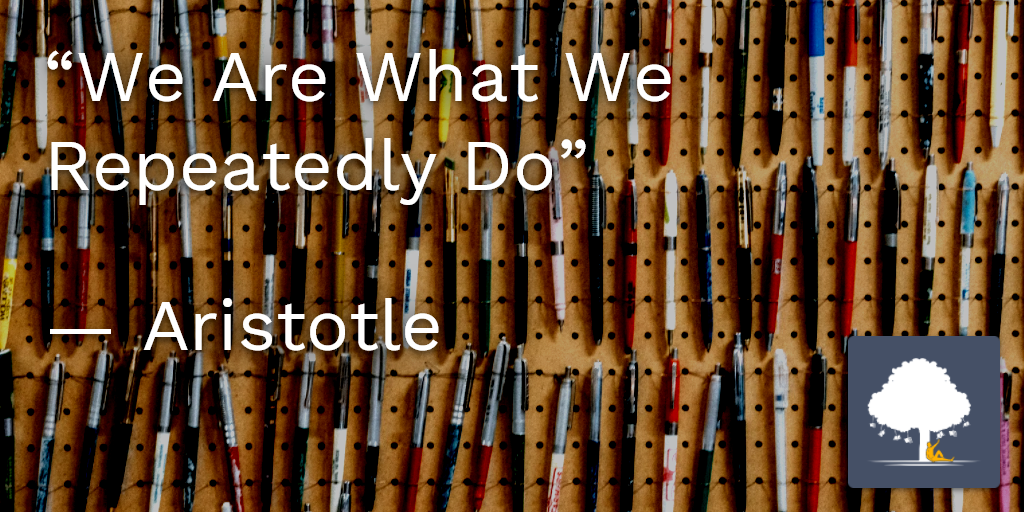
As a programmer, I spend most of my time online. I am constantly connected, receiving messages through a dozen different channels (from Slack to email). I used to have new meeting alerts every 20 minutes, and I could hear all my coworkers in my open-space office. Not surprisingly, I was getting distracted a lot.
I love my work.
Yet, given the choice between work and checking my blinking phone — I go for my phone.
My phone grants me instant gratification. Work, well, work takes time, but once it’s done, I feel like a king. And yet I’m wired to pick up the damn phone — it’s almost sad.
Let’s face it, getting even 20 hilarious messages today won’t beat checking off even a single challenging task from my to-do list. To be realistic, most of the messages I receive are pretty boring. So why would I pause my fantastic work for boring messages?
Fear of Missing Out
The first time I tried to get away from the digital world, I spent two weeks in the mountains. The place had no Internet, and I made sure to leave my phone in the car. I couldn’t sleep that night; I was missing work updates and wasn’t responding on Messenger.
I thought I was missing out on so much!
After my offline vacation, my inbox and my IMs were bursting at the seams. Suddenly, a wild CTO appeared and set up the whole week ahead with discussions of the company’s future. Since I didn’t have the free time to manage all these messages, I cheated, clicked “mark as read”, and forgot about it.
I only hoped all that information I’ve missed wouldn’t get me into too much trouble.
However, missing a few emails didn’t get me into a lot of trouble.
It got me into none. Nada. Zero trouble.
I quickly got the few important things I needed to know from context and a few quick questions to colleagues. Also, I caught up with my friends offline to compensate for missed IMs.
Missing a few emails didn’t get me into a lot of trouble. It got me into no trouble at all.
That was the end of it. I’ve come to the realization that most online communication seems urgent, but it is not.
I stopped losing my mind over emails that I didn’t answer right away. Getting rid of that burden was the last straw I needed to start disconnecting regularly.
Game of Focus
Sometimes I come back home from work, and I’m so tired I can’t get anything done. Even if I tried to force myself to work, I got easily distracted and didn’t do much work. It’s not that I couldn’t physically work; it’s that I lacked focus.
The more I’m tired, the less I can focus. The less I can focus, the less work I can do (with zero focus, the only thing I can do is watch Netflix). You Can’t Think without Focus, and the distractions in your world reduce your ability to focus.
You Can’t Think without Focus
— Dr. Jim Taylor
Interruptions, multitasking, or constantly checking Facebook reduce your focus. They do that by fragmenting your attention. Every time you switch from one task to another, a fragment of your attention remains on the old task. This is called attention residue. Attention residue is the main reason why disconnecting is so powerful.
Attention Residue
Sophie Leroy, a professor at the University of Washington, pioneered the concept of attention residue.
She observed that people need to stop thinking about one task to perform well on another. Yet, the results of her experiments show that people can’t do that efficiently. Some attention remains on the prior task reducing the performance of the new one.
The full text of her papers can be found here and here.
Simply put, once you stop doing something, your brain needs some time to let it go. Any following task receives less focus lowering performance. I can’t think of a worse way to kill your motivation than poor performance. Yet, if you’re getting distracted a lot, you’re unknowingly doing that. I’ll teach you how to get there by reducing the amount of task-switching you’re doing.
Less task switching leads to:
- Improved Focus
- Better Work Performance
- Increased overall happiness
So to get there, we’re finally diving into disconnecting.
How to Disconnect
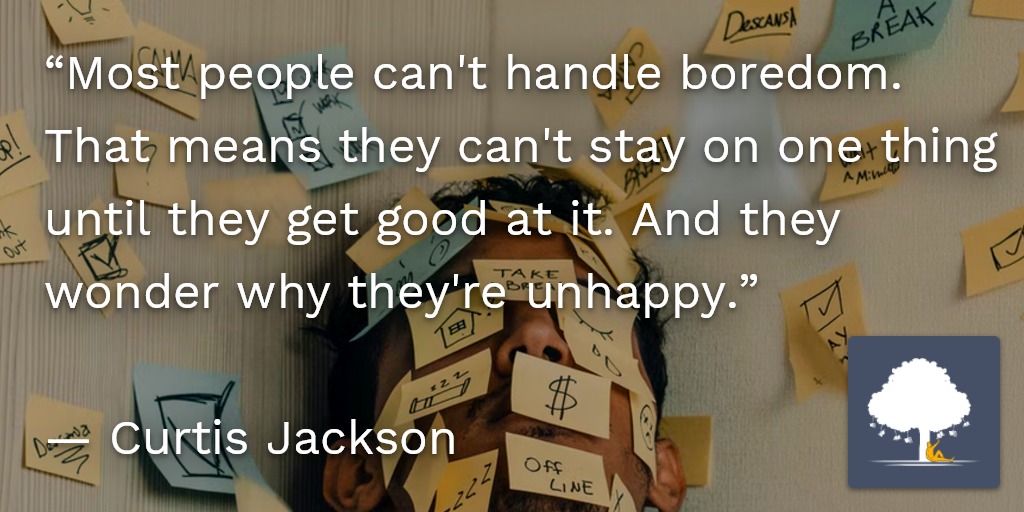
If switching from Facebook to work reduces performance, it’s only logical to stop visiting Facebook. You can also go to a forest and stop speaking to people. Possible, but since both breaks and fun are beneficial for productivity, I’ll help you find a better solution.
Before getting into the details of disconnecting, I will cover structure. It’s all about structure. Disconnecting is a great tool, but it loses its effectiveness without structure.
Structure Your Work
To work effectively, you need good focus. To be happy and productive, you need breaks and distractions. To have both, you’ll have to separate work and distractions into different blocks of your time.
Work Intervals should be:
- Longer. You need time to completely focus and finish a task. I usually go for 30-90 minutes.
- Thorough. You should aim to completely finish a task in a block to make it rewarding. Attention residue is also greatly reduced if the previous task is completed.
- Disconnected. Without distractions.
Breaks should be:
- Elsewhere. Help your brain switch to break mode, by getting away from the standard location for work.
- Active. Move a bit. Move more if you’re a desk worker like me.
- Fun. Write down any work thoughts you have and focus on some other activity – check social media, talk to colleagues, fidget with a toy.
Getting rid of Distractions
This is a topic so long, my first draft was over 10,000 words. I’ll give you the groundwork here and link to extensive pieces on every topic as I finish them.
I wrote down everything that distracted me for a month to build this guide. The final list had whopping 418 items for the 30 days of April. I categorized all those into three different kinds of distraction:
- People Distractions
- Push Distractions
- Self-Distraction
Trying to stop all distractions at once usually takes too much time, so I’ll advise against it. Instead, try tracking your distractions for a few days to find what distracts you most. After you have a few ideas distractions in mind, start reducing or even eliminating them one at a time.
People Distractions

I hate to tell people off for speaking too loud or asking for help while I’m in the middle of something. I also speak louder than most and, at times, interrupt people while they’re working.
While most of the time I’m a distraction, it’s for a good reason (I’m working towards something bigger); sometimes, it’s unintentional. And there are a hundred more people in the office just like me. That many potential distractions can obliterate my productivity. I can’t let that happen.
Hard as it is, feedback is crucial for all my colleagues to improve. I learned to embrace bad feedback, without it I would’ve been half the person I am today. Buckle up and get ready to improve your communication.
Communication is Key
No, seriously, you need to communicate better. Do you want to focus? Tell that to the people around you. Someone is being awfully noisy — tell him that. It isn’t rude. In fact, most of that distracting stuff, people do subconsciously. Be nice, and everyone will respect your honesty.
You want to focus? Tell that to people around you.
Additionally, make sure to notice when someone stops doing something that annoys you. Compliment them on their progress and be the awesome person you are.
Email or Meetings
Email is great for announcements, briefings, status updates, and so on.
Meetings are good for discussion.
If you’re taking a bunch of people’s time with a meeting, make sure you do it properly. Don’t just mass invite or put an arbitrary 2-hour duration. Here are some guidelines for organizing a productive meeting:
- Have an agenda. Know what you’re discussing at all times.
- Have a goal. If you don’t know what your goal is, the goal automagically becomes “wait for the meeting to end”. Use a goal to focus the meeting and reduce its’ duration.
- Short briefing. Don’t spend 45 minutes talking at the beginning. Meetings are the wrong medium if your communication is one-directional. Touch on the most important points to start off the discussion.
- Email the details. Send a detailed email along with the invitation to the meeting. People can read that on their own terms.
- It’s not a monologue. Again, not the correct medium for that.
Invite people to a presentation if a meeting is not the way to go. You can keep all the talking to yourself, and everyone else won’t feel bad for not joining if they are not interested.
GTFO Headphones
Yes, GTFO means “Good Those Filter Out everything headphones”. I love wearing a pair of big headphones. I started using them to block out ambient noise and play focusing tunes. It turns out they have an even greater benefit.
Yes, GTFO means “Good Those Filter Out everything headphones”. I love wearing a pair of big headphones. I started using them to block out ambient noise and play focusing tunes. It turns out they have an even greater benefit.
GTFO Headphones are a social weapon. Since you can’t hear other people*, they need to put that much extra effort into talking to you. This makes the interrupters stop and think: “Do I want to waste my time and effort on this question?”. If they decide to save their time, they also end up saving some of yours, too.
* Not being able to hear other people is not necessary. At times I fake it to strengthen the psychological barrier people have to pass to contact me.
Finally, GTFO Headphones can be used as a symbol. If you let your coworkers know that those symbolize your deep work. Make sure to give your colleagues time to get used to the idea. If they interrupt you, chances are they aren’t rude but forgetful.
Push Distractions
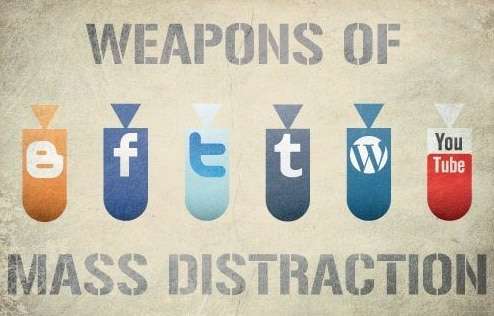
One of the worst things that can happen to your productivity is to receive a notification. The potential of the content behind it being awesome excites your brain. Dopamine is released in anticipation. You are instinctively drawn to spend some time on the distraction.
I’ve recorded my behavior and found that just checking the notification wasn’t the end of it. I usually end up spending some more time on the app. And then some more. Social media is designed to be addictive. A lot of apps and games are also going this way to stay relevant. Behind most notifications, there’s the potential for more fun (and less work).
To get rid of distractions, use the Do Not Disturb mode on your phone. Put the phone away and reap the benefits.
As I stopped using my phone while working, I got more productive, yes. There was also an unexpected effect that made it even better. Surprisingly, stopping my external entertainment made my work more entertaining. I was able to immerse myself in work and thoroughly enjoy my days.
I was able to immerse myself in work and fully enjoy my days.
If you want to know more about getting rid of push distractions, I’ve written a detailed post on notifications.
Self-Distraction
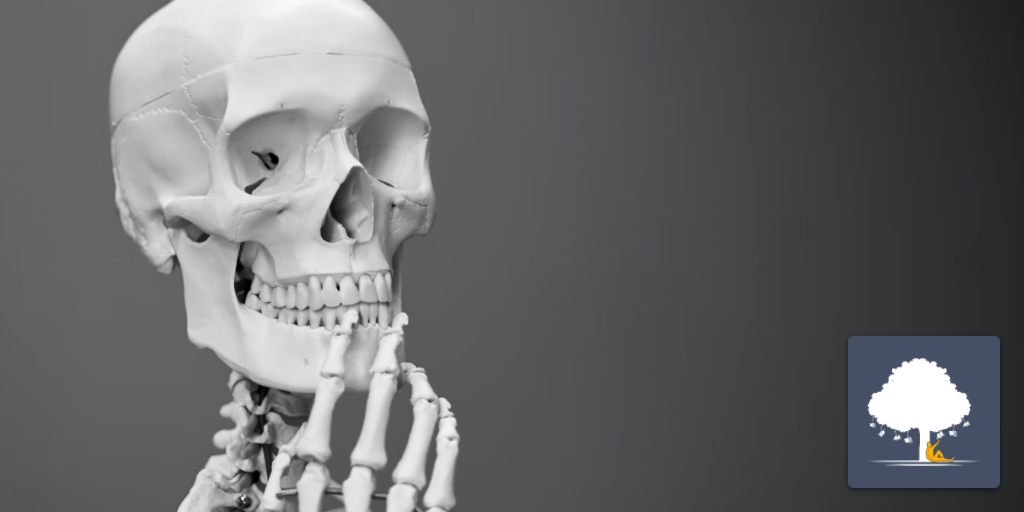
In my plans, I’m the most productive person on the planet. In reality, once I’ve lost my momentum, there is a good chance I’ll procrastinate for hours until I roll up my sleeves. There are plenty of momentum-killing events in my days, so I’m using a few things to keep me on track.
30 Seconds to Act
Thinking kills productivity. Spend a lot of time thinking about starting to do something, and you’ll most likely end up not starting at all.
Thinking kills productivity.
Motivation is a fleeting feeling, use it while you have it. That’s why this is the 30-second rule. When inspiration strikes and you feel motivated to do something – start in 30 seconds. This will ensure that you won’t overthink and get to the doing part. Also, own it.
When you feel motivated, act in 30 seconds.
Motivation isn’t the only reason why thinking before a task makes you procrastinate. Your brain helps, too!
Your prefrontal cortex is in charge of planning complex cognitive behavior (read “work”). It vividly visualizes every detail of the process ahead and how you’re going to handle it. Doing so is natural, but spending too much time on it has a couple of pitfalls:
- It’s inaccurate – your brain uses a heuristic to approximate the road to your goal. Your tasks will usually be a tad too complex and this approximation will be inaccurate. This lets you underestimate the task at hand and delay it (read procrastinate).
- It gives you false rewards. Have you read that you can become better at something by imagining it? Your brain is powerful like that. The side effect is that you feel as you’ve kind of done the task you’re visualizing. Your brain substitutes the actual task with the imagined task. For the same reason, you shouldn’t share your goals.
To be clear, I’m not saying “don’t think”. Plan your life, days, and tasks – think about everything as much as you need, but when you get to the doing – focus on the doing. Planning is essential for your success; just make sure you actually execute the planned tasks.
Deny Yourself Distractions
When I get distracted, I’m never thinking, “Yay, now I’m getting distracted!“. It’s usually something small and harmless that lures me into the dark voids of the internet — opening a fun link a colleague sent me on Slack or just that one hilarious image on Imgur. Those small distractions can quickly grow out of proportion.
Another common scenario is the habitual checking of social media. I had the dreadful habit of opening five social media tabs every time I opened a browser window. I was intentionally staying away from my browser because I knew me. Good grief, I’ve found a better way!
Blocking Software
I’ve spent 10 years of my life building unproductive online habits. I can’t trust my brain not to get distracted. So, now I use blocking software.
You spend a few minutes setting up an app, turn off your phone and enjoy the steroids your focus is on. In the beginning, you will even feel bad at times that you can’t “take a break” by wasting time online. I certainly did. But after a while, you get used to it, and you start feeling great about your superb work.
I have already explained why attention residue kills your productivity. Add that to the actual time you save by not brainlessly clicking online and you get a pretty good case in favor of disconnecting.
Here are a few recommendations for blocking software:
- Cold Turkey — One of the best tools to block websites and apps on PC and Mac. Has a fully-featured free version.
- StayFocusd — A free and awesome Chrome Extension to block websites. I can also restrict you to a certain amount of time.
- Freedom — An effective website & app blocker for iOS, Mac, and Windows. It costs a few bucks every year, but it’s one of the few good cross-platform options.
I’m currently using Cold Turkey, combined with the Do Not Disturb mode on my phone.
Making it impossible is simple, easy, and extremely effective. Click to Tweet
So, go ahead and make me proud!
Disconnect for Doubled Productivity
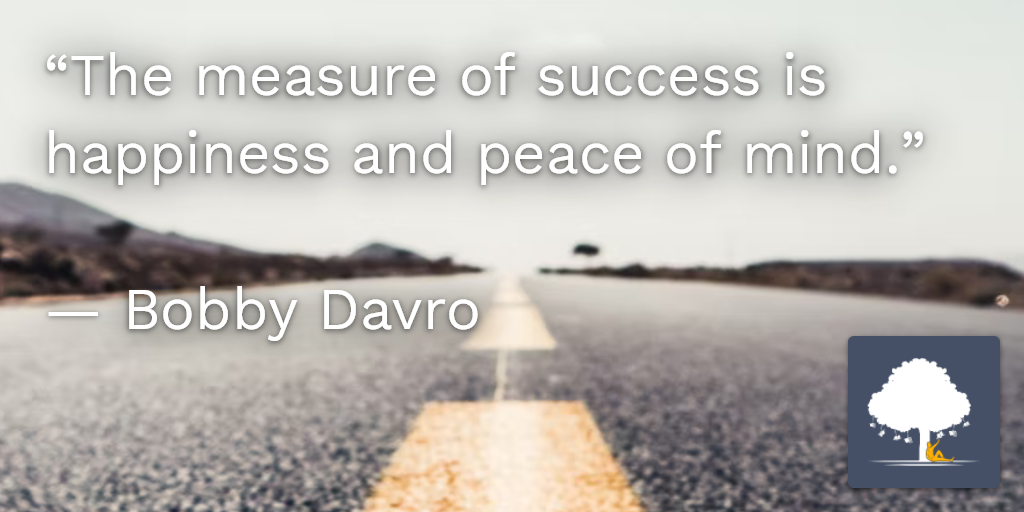
I simply ignored disconnecting the first time I read about it. I thought that without notifications, I wouldn’t know what happened or if I unintentionally ignored a colleague, they’d hate me. It turns out I was wrong. Not only did my work improve, but my relationships improved, as well. Being fully present at the moment doesn’t happen if your phone is beeping every 30 seconds.
Disconnecting changed my life and it can change yours, too. Just remember, it’s not as easy as it seems. You need to work on it. It will take time until you get good, but it’s worth the effort.
“Rule your mind or it will rule you.”
Horace




